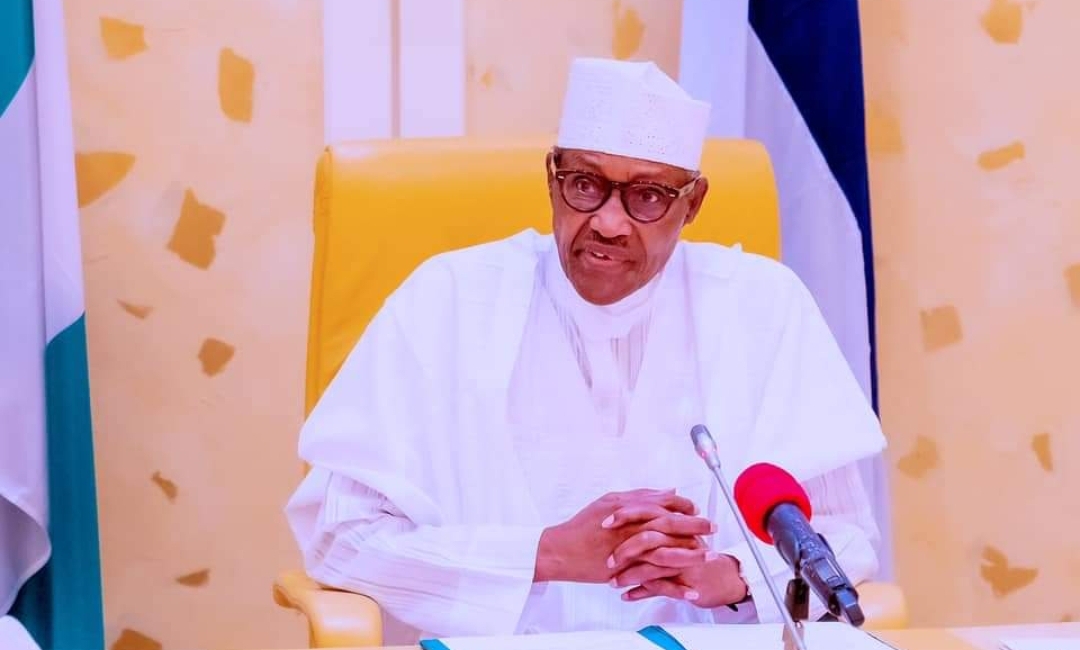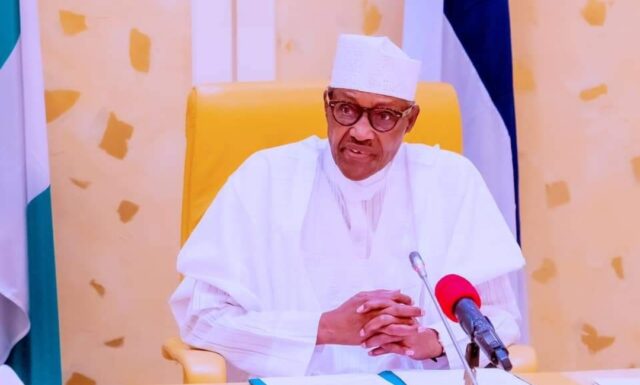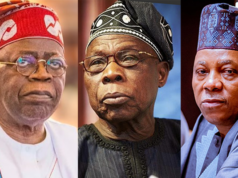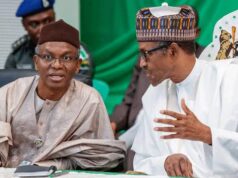
By Uche Amunike
Over the years, Nigerians resident not only here in the country, but also in the diaspora have constantly expressed their concern over the possibility of rumours about President Muhammadu Buhari‘s dementia, being true, especially as he always has the tendency to either deviate completely from questions or give replies that have no bearing with the questions asked him, during interviews.
One of such interviews was held with Channels Television where President Buhari was drilled by Nigerian journalists on issues relating to his administration since it came into power after he took over from Ex-President Goodluck Jonathan in 2015.
Nigerians looked forward to the interview, especially as the level of insecurity and poverty rate has presently been on the increase in the country and they needed to listen to the President to know what hope there was for the country.
As has been the case in past interviews, Buhari gave no glimmer of hope through his comments while it lasted. The more his interviewers asked him questions bothering on Nigeria’s economy, security and development, the more President Buhari’s Dementia became indisputable.
When he was asked what his administration was doing to avert the possible escalation of clashes between herders and farmers in parts of the country now that the dry season was here, he responded thus: ‘The Ministers of Agriculture from Audu Ogbeh to Mahmoud, now one of the issues I discuss with them personally is to go and get the gazzette, especially of Northern states. There are grazing routes and the cattle rearers are confined to those areas. Anyone that goes outside is arrested and farmers are encouraged to lay their claims. If they don’t have money, the cattle are sold and the farmers are settled. We said we have to go back to this system again to make sure that we prepare the grazing areas so that farmers and herders don’t clash’.
Another interviewer asked a third time, what President Muhammadu Buhari thought could help bring a lasting solution to the herder/farmer crisis and problem of banditry in Nigeria and his response was: ‘it is a problem of culture. You have to study it to understand. The life of normal herders…they depend entirely on them. They sell their milk; they sell their animals to pay tax and so on. So if those cattle were taken away from them they normally become wild because that is the only thing they know. It is a cultural problem. The way we will do it is to start from bottom up to make sure the grazing area and water points are secured to them’.
When the journalist asked President Buhari if he thought state policing was a possible solution to the issue of insecurity in Nigeria, especially with the increase in crime rate across the country, he answered: ‘The role of traditional rulers must not be undermined because in their areas, they know who is who. We have to revert to that system for us to have an effective security. There were two governors that came to see me about problem. The governor of Oyo state and governor of …em…em Oyo state and one other state. I said because the herders were in their forests, the animals were going into neighbouring farms and eating all the crops. As far as I know, the farmers and herders have been coexisting in Nigeria. Let them go and ask the local leadership what had gone wrong, why the break in communication between them and the herders’.
In another response that ran contrary to the question asked, President Buhari’s dementia could be said to have been confirmed to be proven to be true when he was asked the number of Nigerians his administration has lifted out of poverty so far. His response: ‘I can’t tell you off hand. Only 2.5% of arable land is being cultivated full stop so we are going to turn our attention to agriculture for the first time remaining for us.
Unfortunately, there is political problem. In the south there is problem of land ownership very serious one based on families, the ruling classes and so on. But luckily in the North, all lands belong to government. They can take any land at any time’.
At this point one of the interviewers tried to bring him back to the question by asking if there was a setback in lifting some Nigerians from poverty and yet again, he went off the mark by responding thus: ‘we have setback and it is resource shortage. We need to buy machinery. Tractors, clearing the land, dividing it and giving people seeds and fertilizers and that costs money’.
The one-hour interview has since continued to generate reactions across and beyond the country.







